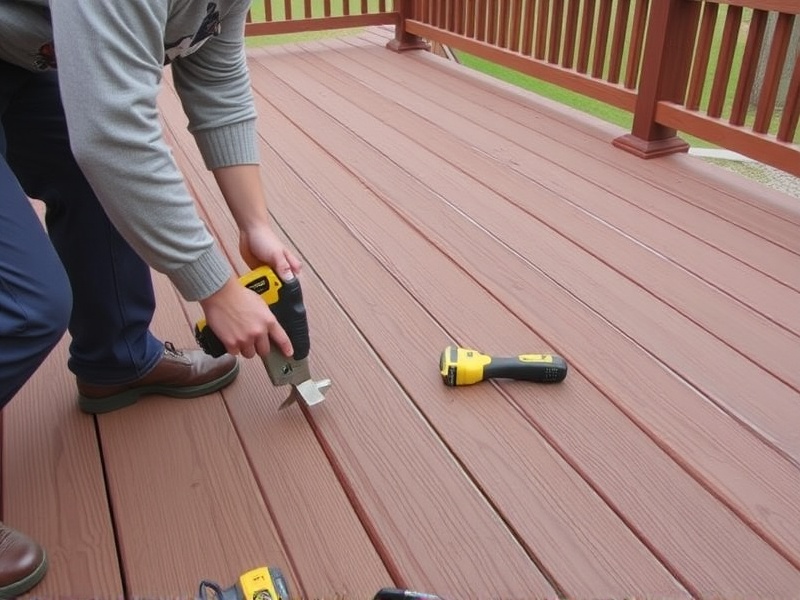Our Location
304 North Cardinal St.
Dorchester Center, MA 02124
Discover the key tools needed to successfully install composite decking, ensuring a durable and beautiful outdoor space.

Composite decking has become a popular choice for outdoor living spaces due to its durability, low maintenance, and aesthetic appeal. Installing composite decking requires specialized tools that can make the process more efficient and ensure the longevity of your deck. This article delves into the specific tools needed for the job, discussing their uses, benefits, and providing tips on how to choose the right ones.
A circular saw is essential for cutting composite boards to size. Unlike traditional wood, composite materials require a blade with more teeth, typically between 60 and 80, to prevent splintering and achieve clean cuts. Look for blades designed specifically for composite materials, which can be found at most hardware stores or online. (Family Handyman)
A drill is necessary for creating pilot holes before screwing or nailing composite decking boards. Using a drill with appropriate bits ensures that the material does not split during installation. For composite materials, it’s advisable to use spade bits or Forstner bits, which produce cleaner holes compared to standard twist bits. (Popular Mechanics)
Choosing the correct screws is crucial for the stability and appearance of your deck. Stainless steel or coated screws are recommended as they resist corrosion better than standard steel screws. When selecting screws, consider those that come with a hidden head design, such as hidden fasteners, which can provide a sleeker finish. (“This Old House”)
Deck joist hangers are used to attach beams and joists securely. They come in various sizes and are designed to support different load requirements. It’s important to use hangers that match the dimensions of your joists and beams to ensure proper support and structural integrity. (“The Home Depot”)
Accuracy is key when building a deck. A level ensures that your deck remains flat and even, while a measuring tape helps in precise measurements for cutting and positioning. These basic tools are indispensable for ensuring that all parts of your deck align correctly and look professional. (“Bob Vila”)
When selecting tools for your composite decking project, prioritize quality over cost. Investing in good-quality tools will not only last longer but also perform better, making the installation process smoother and more efficient. Additionally, consider renting specialized tools if you do not plan to use them frequently. Lastly, always follow manufacturer guidelines and safety precautions when using power tools.
Installing composite decking involves a variety of specialized tools that play critical roles in achieving a durable and aesthetically pleasing outcome. By understanding the uses and benefits of these tools, you can make informed decisions and ensure a successful project. Whether you’re a seasoned DIY enthusiast or a beginner, having the right tools at your disposal will significantly enhance your experience and the final result of your composite decking installation.